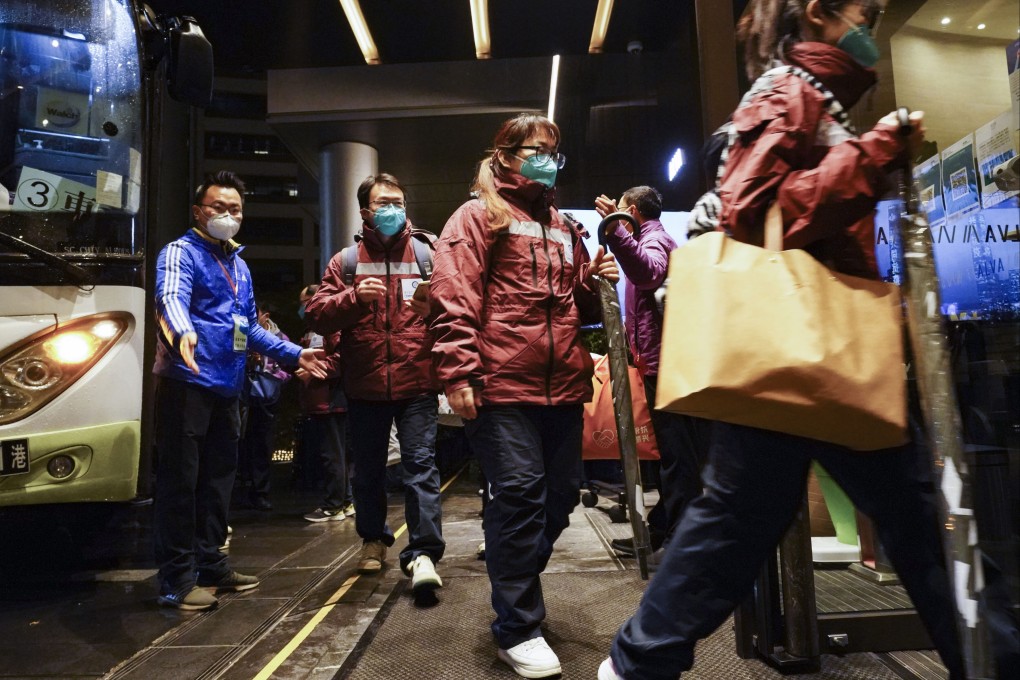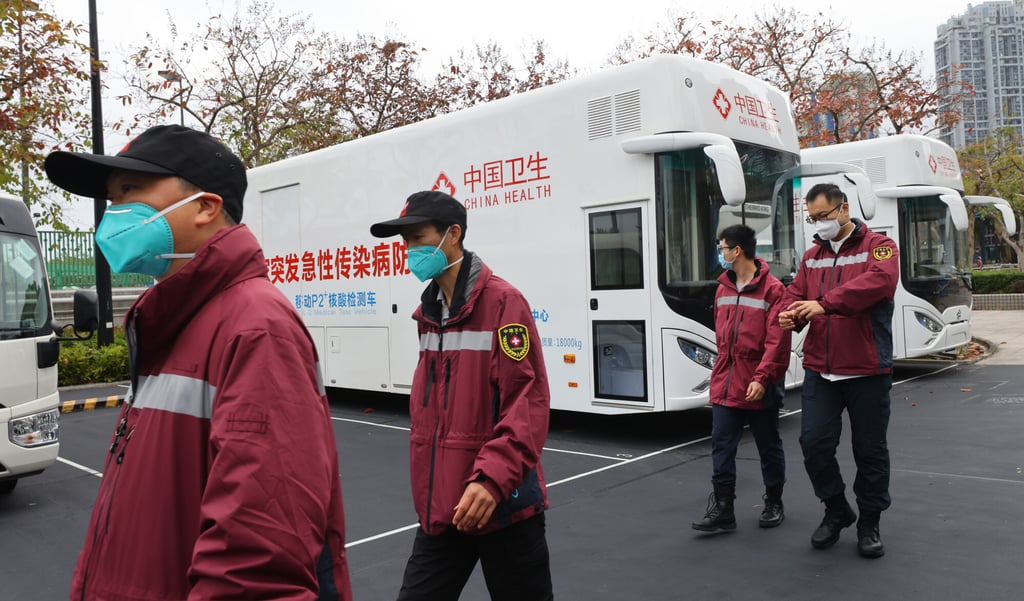Advertisement
Chinese medical staff rally for Hong Kong Covid-19 campaign
- Hospitals in Guangdong province select doctors and nurses to help city tackle surge in cases
- Greater risk of contracting the coronavirus but no shortage of volunteers, medics say
Reading Time:3 minutes
Why you can trust SCMP
2

More than 100 medical workers from the southern Chinese province of Guangdong arrived in Hong Kong on Saturday to help the city tackle a surge in coronavirus cases.
Guangdong authorities said the 114-strong team would help with research, treatment, and testing.
All of the staff had were experienced in Guangdong’s anti-coronavirus campaigns and most were proficient in Cantonese and English.
Advertisement
An advance party of four mainland epidemiologists arrived in Hong Kong on Thursday and inspected the testing labs and held discussions with local health officials.
Guangdong plans to send more than 1,000 doctors and nurses to Hong Kong as part of the campaign, according to a provincial health official.

The official, who declined to be named because he was not authorised to speak to the media, said the main task would be to help with collecting samples.
Advertisement
Select Voice
Choose your listening speed
Get through articles 2x faster
1.25x
250 WPM
Slow
Average
Fast
1.25x